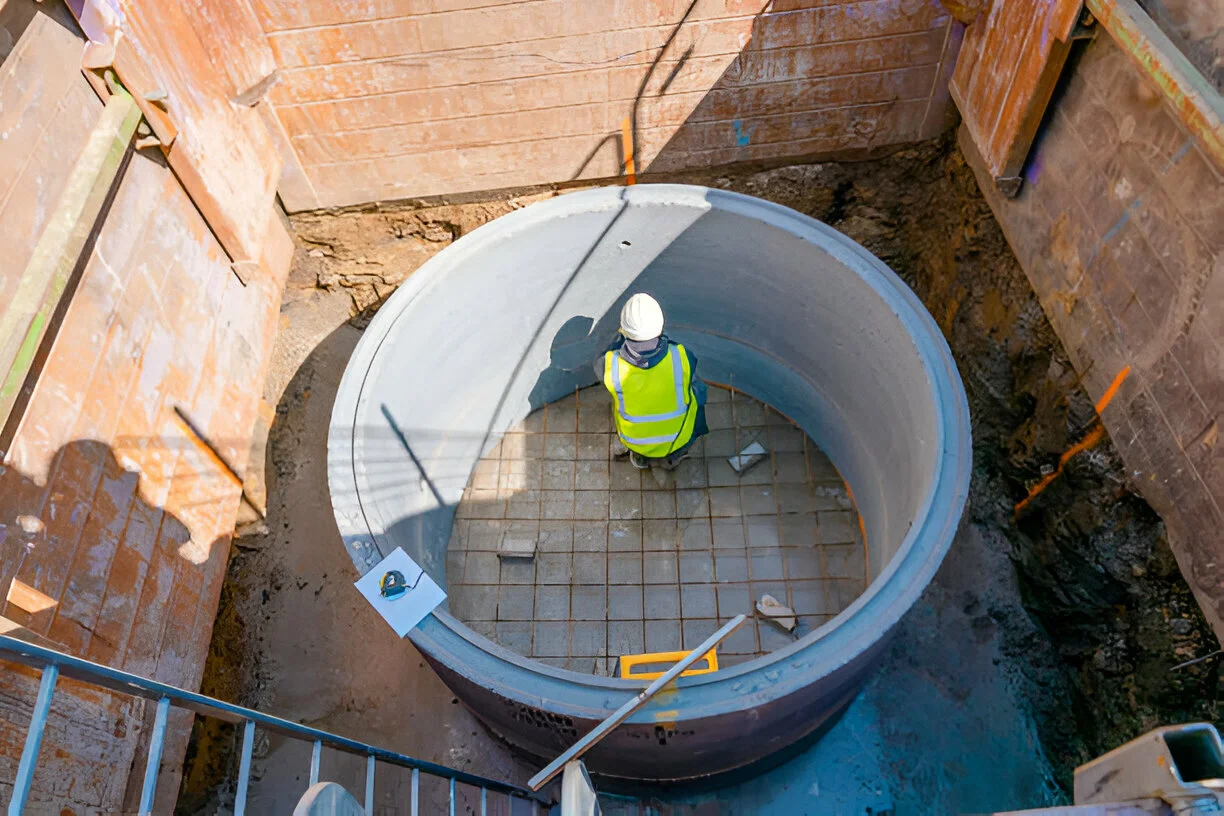Underground concrete water tanks are developing rapidly around Australia as they are an essential component of efficient water supply systems. In terms of durability, heat stability, and storage capacity, underground concrete water tanks offer many different benefits than above-ground water tanks, which makes them often more attractive. An expert professional team must build a concrete underground water tank to optimise its safety, efficiency, and functionality. This comprehensive guide to your underground concrete tank will give you essential insights into getting the best concrete underground water tanks for your property.
Design and construction key element
- Select your site location considering soil type, groundwater level, accessibility for maintenance and proximity to the building.
- Focus on the integrity of your structures with proper design and efficient construction techniques. Your water tanks must resist external pressures, soil loads and hydrostatic forces.
- Apply waterproof methods to prevent leaks and infiltration.
- Provide proper ventilation to prevent gas buildup and maintain a safe environment.
- Incorporate access points designed for inspection, cleaning and maintenance.
Maintenance tips
Maintenance is vital to enhancing your water tank lifespan and optimum functionality.
- Install a routine that allows you to identify signs of damage, corrosion or weakness and proceed to regular inspection.
- Clean regularly to remove sediment, algae or contaminants that can negatively impact water quality.
- When you observe an issue, proceed quickly to reparation to avoid the problem getting bigger, which could imply a higher cost.
- Apply coating and sealing as needed to keep your water tanks safe.
- Track water levels, pressure and quality to monitor any abnormalities and act as soon as possible when needed.
Safety measures
An underground water tank must be built within safety regulations to ensure your water sanity.
- You must install gas detection sensors that warn you instantaneously of potentially harmful gas formation, such as methane or hydrogen sulphide. These sensors are necessary to prevent air intoxication and keep you and your environment safe.
- To prevent gas formation, ventilation systems must be installed by professionals with the knowledge to place them adequately.
- Entering your tanks must be done according to a pre-established protocol established by professionals that will ensure the person’s safety. It must include proper training, the right equipment and clear communication.
- Your contractor must develop emergency response plans in case of an issue, which include evacuation, rescue operations and containment of hazardous situations.
- Adhere to safety regulations, codes and standards. Apply them to each step of your underground water tank project, from its design to its construction and operation.
Summary
Underground concrete water tank building must be done by a responsible professional, who can be found on this website. It is crucial to find a building company that emphasises your water tank’s safety, maintenance and durability. Indeed, this guarantees that you will get a structure that will withstand time and function at its best. Do your research and seek advice around you and online to make an informed choice regarding the company you will employ to build your underground concrete water tank.









